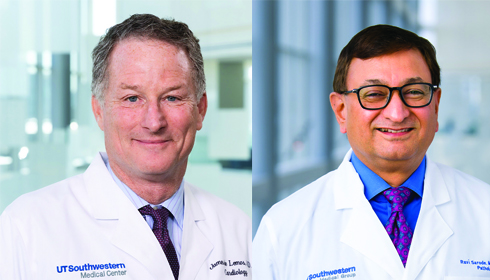
Antibodies linked to a rare illness may predict future risk of heart attack and stroke: Study
A study led by researchers from the University of Texas Southwestern Medical Centre found that apparently, healthy people whose blood contained antibodies related to a rare disorder known as antiphospholipid syndrome (APS) were significantly more likely to experience a cardiovascular event such as a heart attack or stroke than those who did not.
The findings of the study, published recently in JAMA Network Open, suggest a new way to predict cardiovascular disease risk, which might one day be used as a new way to predict cardiovascular disease, the researchers said.
Pointing out that “APS itself is rare, Dr James de Lemos, Professor of Internal Medicine and Chief of the Division of Cardiology at UT Southwestern, who co-led the study, said, “ (but) Some people in the general population who have never been diagnosed with APS may carry its antibodies. This study is a first look at whether there might be a broader role of testing for these antibodies.”
APS is an autoimmune disorder in which antibodies assault blood vessel lining cells, platelets, and immune cells, promoting the formation of blood clots that can lead to heart attacks, strokes, or deep vein thrombosis, as well as contribute to miscarriages during pregnancy, the researchers said.
“APS is typically diagnosed by testing for antiphospholipid antibodies only after individuals experience a serious clotting event or have recurrent miscarriages,” explained Dr de Lemos.
However, previous research has shown that a significant number of people who have not had clot-related cardiovascular problems also carry antiphospholipid antibodies Dr de Lemos said that whether these antibodies play a role in cardiovascular disease or how has been unclear.
Also Read:
| - US researchers discover autoantibody that destroys fat deposits in a rare disorder |
To help answer those questions, the researchers looked into the Dallas Heart Study, which started in 2000 and produces data on cardiovascular disease risk from thousands of participants, in which Dr de Lemos currently serves as the Principal Investigator.
Testing the blood from the participants between 2007 and 2009, the researchers after looking for the presence and amounts of eight different antiphospholipid antibodies, analysed these data along with questionnaire responses gathered during a follow-up period that averaged eight years to see which participants experienced a heart attack, stroke, coronary bypass surgery, or death from cardiovascular disease.
The researchers found that 14.5% of the 2,427 people who took part had antiphospholipid antibodies in their blood.
According to them, about a third of those had antibody levels that can be considered moderate or high.
During the follow-up period, 125 individuals experienced cardiovascular events and after adjusting for risk factors including age, sex, race, body mass index, smoking history, cholesterol levels, and diabetes, the researchers found that the presence of two particular antiphospholipid antibodies, aCL IgA and ab2GPI IgA, was associated with a future cardiovascular event.
They discovered that this link was considerably stronger in those who had substantially higher levels of these two antibodies.
According to lab results, These antibodies may impair "good" cholesterol's capacity to absorb lipids in the blood and transport them to the liver for disposal. According to the experts, they may also increase the formation of atherosclerotic plaques in the heart, brain, and other parts of the body.
Noting that because antibody levels can be transient and blood samples were done on a single visit, dr Dr. de Lemos said that more studies are needed to better understand whether antiphospholipid antibodies remain elevated in people without diagnosed APS and how this might relate to heart disease.
Dr Ravi Sarode, the Chief of Pathology at UT Southwestern, said that if further research supports the study’s initial findings, labs would be able to test patients for antiphospholipid antibodies.
“These antibodies are easy to test; we test them all the time in our lab for certain patients,” Dr Sarode said.
“It is very important to note that very few labs test for these specific antibodies. However, we would need more information to use them in the right clinical setting for patients who may be at higher risk of heart attack or stroke,” he added.